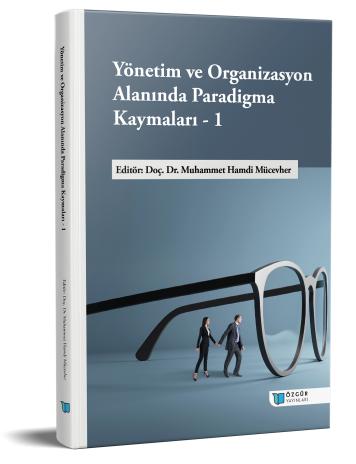
Diversity, Equality and Inclusion Practices that Replace Discrimination in Organizational Management
Chapter from the book:
Mücevher,
M.
H.
(ed.)
2025.
Paradigm Shifts in Management and Organization – 1.
Synopsis
This section focuses on the principles of Diversity, Equality, Inclusion (DEI), which have replaced discrimination practices and represent current management approaches. Today, discrimination is a multi-layered phenomenon that affects social order as a violation of human rights in social life; and threatens the realization of sustainability strategies and goals of organizations in business environments. Discrimination is generally defined as an individual being subjected to disturbing behavior due to any characteristic. This section first explains the definitions of the concept of discrimination, and then evaluates examples of discrimination based on individual characteristics such as gender, age, and disability encountered in organizations. It is suggested that discrimination encountered in the workplace should be combated and in this context, a zero tolerance policy should be adopted, awareness training should be organized, recruitment processes should be made transparent, equal pay for equal work, and an inclusive language should be used. In the continuation of this section, the concepts of Diversity, Equality, and Inclusion (DEI) are discussed separately and explained from an organizational perspective. DEI practices include not only superficial representation of diversity, but also ensuring equal opportunities and the active participation of all employees in decision-making processes. Diversity represents the presence of individuals with different characteristics in the organization; while equality refers to providing equal opportunities to these individuals and eliminating practices that lead to discrimination. Inclusion, on the other hand, emphasizes the active representation of these differences in organizational processes, their participation in decision-making processes and their empowerment. When considered together, all three concepts play an important role in preventing discrimination and creating a sustainable work environment based on ethical principles. In addition, how discrimination and DEI practices are addressed in terms of international and national norms is included. In the literature, it is stated that the DEI approach is a paradigm that has replaced discrimination-based approaches and has become institutionalized in contemporary management thought.

